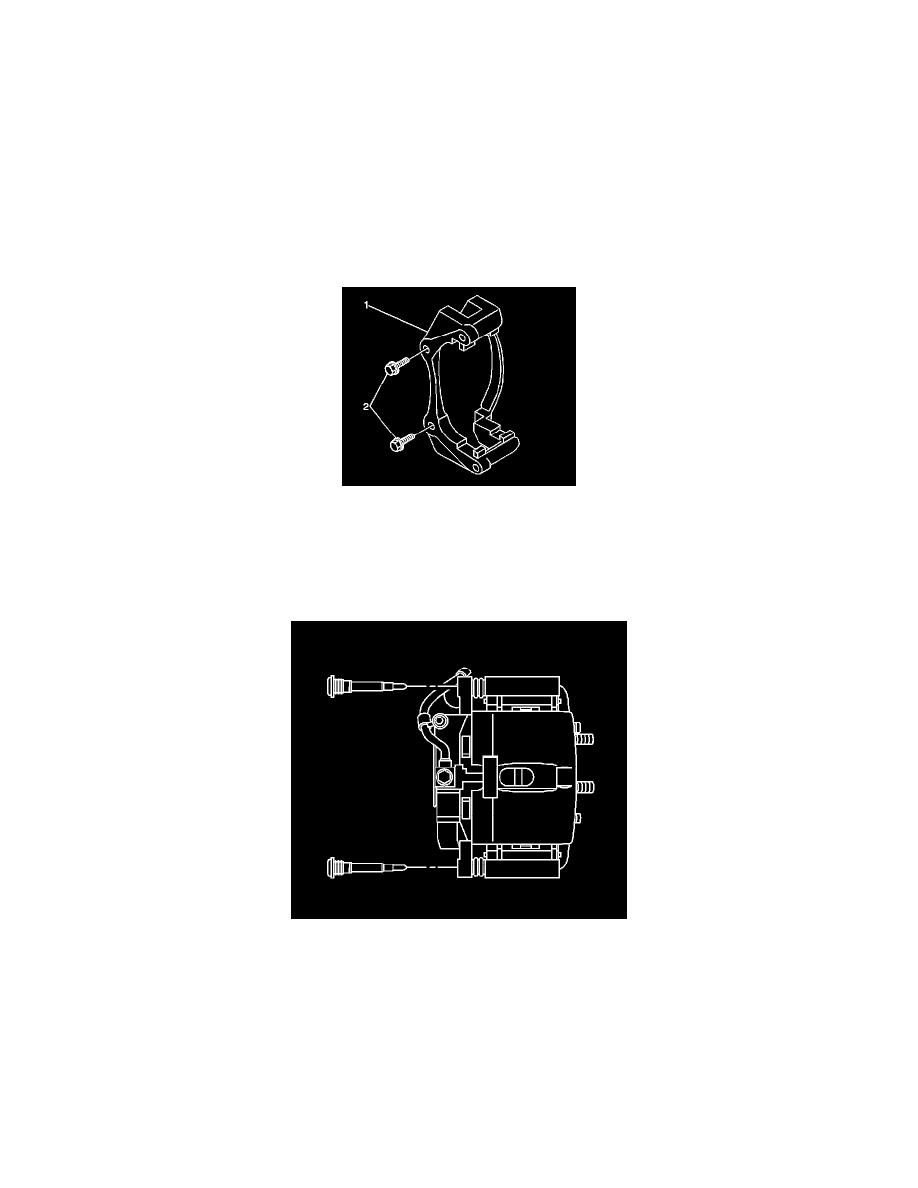Avalanche 1500 2WD V8-5.3L (2008)

1. Inspect the fluid level in the brake master cylinder reservoir.
2. If the fluid level is midway between the maximum - full point, and the minimum allowable level, no fluid needs to be removed from the reservoir
before proceeding.
3. If the fluid level is higher than midway between the maximum - full point, and the minimum allowable level, remove fluid to the midway point
before proceeding.
4. Raise and support the vehicle. Refer to Lifting and Jacking the Vehicle .
5. Remove the tire and wheel assembly. Refer to Tire and Wheel Removal and Installation .
6. Compress the brake caliper pistons.
1. Install a large C-clamp over the top of the caliper housing and against the back of the outboard pad.
2. Slowly tighten the C-clamp until the pistons are pushed completely into the caliper bores.
3. Remove the C-clamp from the caliper.
7. Loosen, but do not remove the rear brake caliper guide pin bolts.
8. Remove the brake caliper bracket mounting bolts (2).
9. Remove the caliper bracket (1) and brake caliper as an assembly.
Notice: Support the brake caliper with heavy mechanic wire, or equivalent, whenever it is separated from its mount and the hydraulic flexible
brake hose is still connected. Failure to support the caliper in this manner will cause the flexible brake hose to bear the weight of the caliper, which
may cause damage to the brake hose and in turn may cause a brake fluid leak.
10. Remove the caliper guide pin bolts from the caliper bracket.
Support the caliper with heavy mechanic's wire or equivalent. DO NOT disconnect the hydraulic brake hose from the caliper.
